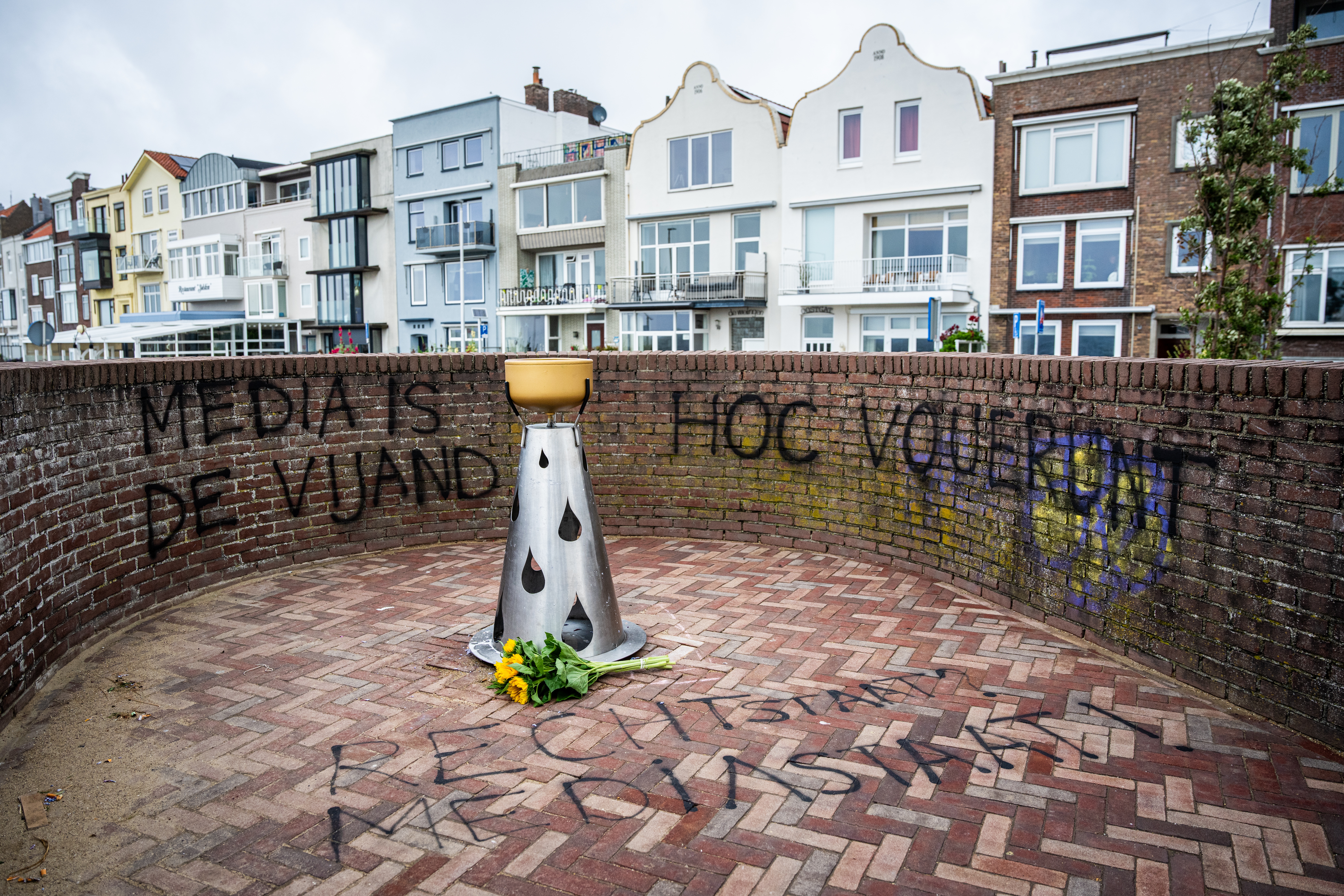Vandals attack monument to slavery during Keti Koti weekend

A public artwork erected to commemorate the victims of slavery in the Dutch colonies has been vandalised on the weekend that king Willem-Alexander apologised for the Netherlands’ slave trading past.
An unauthorised monument in the Zeeland port of Vlissingen was covered in stickers of Dutch flags, while slogans including “White minority 2070” and “Media are the enemy” were sprayed around it.
Zeus Hoenderop, the artist who designed the monument, said the damage to his work was “scandalous”. “This really is an act of racism and it has no place here,” he said. “I know people behave badly, but I hadn’t expected this.”
Police investigating
The local council, which earlier declined to authorise the monument, said it would not tolerate the vandalism and would be reporting it to police as a racist offence.
Police spokeswoman Leonie van Ooijen said: “We will wait for the official complaint. We think this is unacceptable and inappropriate.
“Whether it’s a synagogue being daubed in swastikas or damage to a monument to slavery, we will take it seriously. The fact that the artwork was put here illegally isn’t relevant to us.”
Vandals were also initially blamed for damaging a sculpture put up behind the town hall in Eindhoven, but the city council said after reviewing video footage that it was not deliberate.
The sculpture of a leg iron and chain was detached from its pedestal when a cyclist tried to secure their bike against it.
“The monument wobbled and the person let go immediately. Later, after they left, it fell down,” a spokesman said.
The temporary sculpture was unveiled on Friday as part of the city’s first official Keti Koti festival.
Keti Koti – meaning “break the chains” – has been commemorated in Amsterdam’s Oosterpark since 2002 and the event has gradually spread to other towns and cities in the Netherlands.
July 1 has been a public holiday in Suriname since slavery was abolished there in 1863, though the last slaves were not freed for another 10 years under the terms of abolition.
On Saturday the king formally issued his apologies for the Dutch state’s role in transporting and enslaving people in the Netherlands’ former colonies from the 17th to the 19th centuries.
“On this day that we remember the Dutch history of slavery, I ask forgiveness for this crime against humanity,” he said.
Thank you for donating to DutchNews.nl.
We could not provide the Dutch News service, and keep it free of charge, without the generous support of our readers. Your donations allow us to report on issues you tell us matter, and provide you with a summary of the most important Dutch news each day.
Make a donation